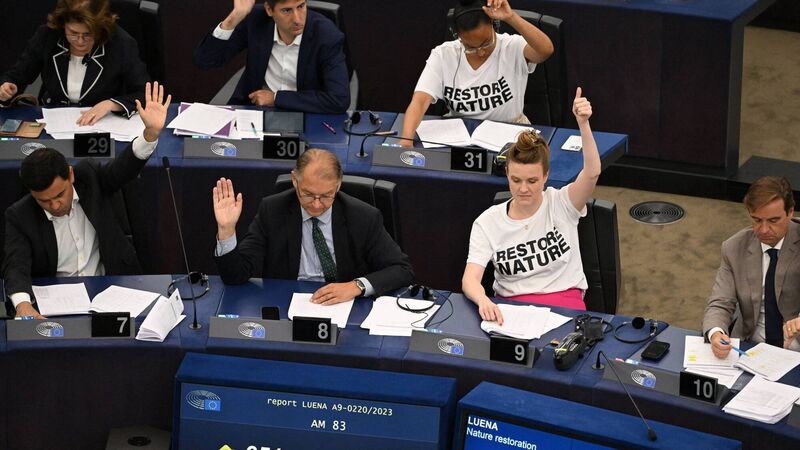Dramatic final vote to get EU's Nature Restoration Law across the line

Members of the European Parliament wearing tee-shirts reading "Restore Nature" react as they take part in a voting session on EU nature restoration law during a plenary session at the European Parliament in Strasbourg, eastern France, in July 2023. Picture: Frederick Florin/AFP via Getty Images
Former EU Agriculture Commissioner Franz Fischler warned last week that the nature restoration law is "not well drafted, and contains unresolved property issues and financial consequences".
The Austrian politician was close to the political intrigue which surrounded the law's final push over the line into EU legislation.











